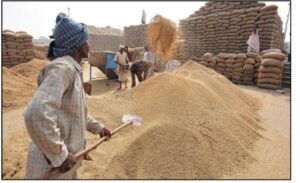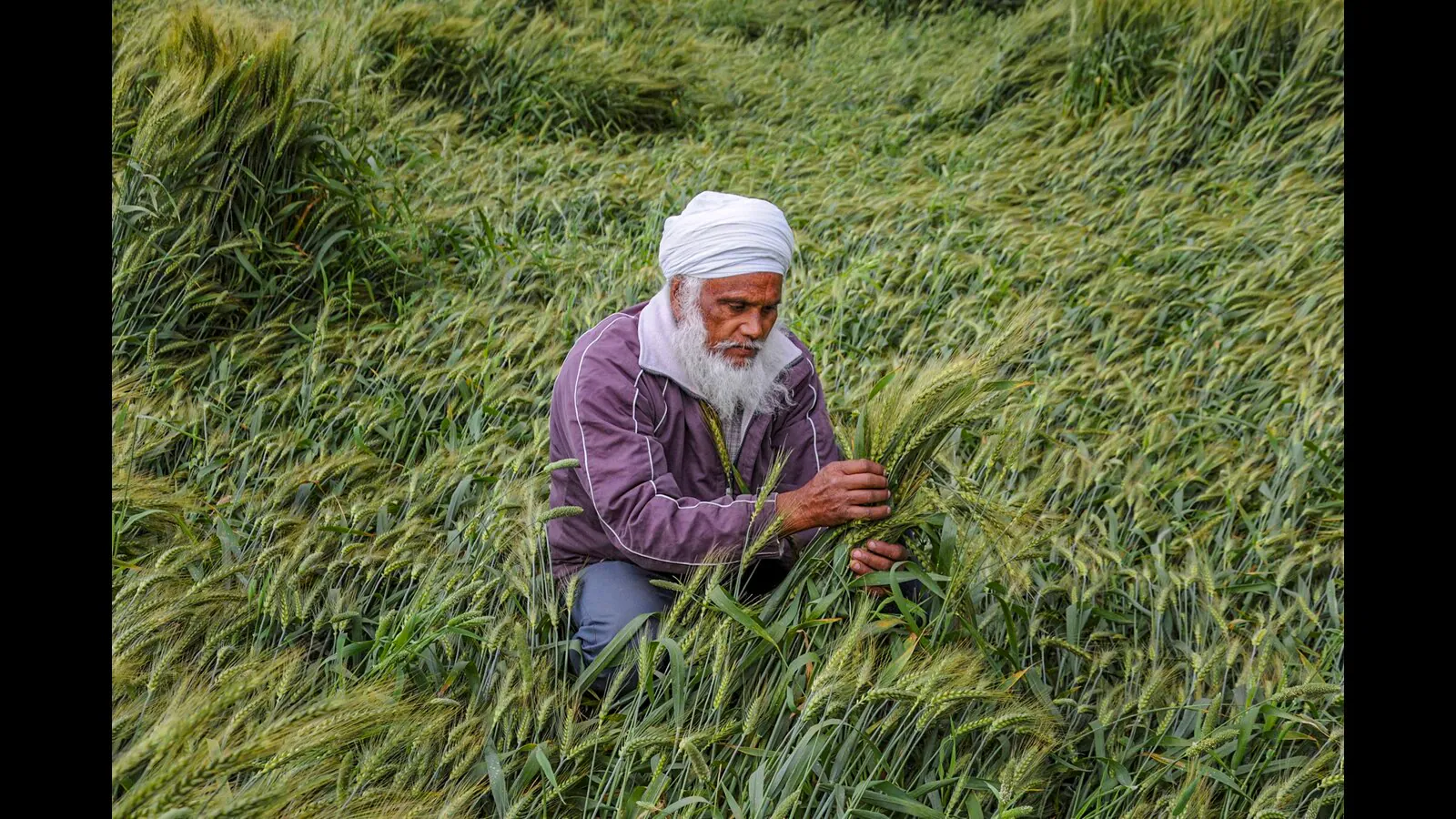
Ghulam Ahmad Pattern-In-Chief APFDA
In Pakistan, the wheat crisis has escalated, posing a significant threat to the country’s farmers and agriculture. The economy of farmers has already been disturbed due to previous seasonal fluctuations, and now, the sudden crash in wheat prices adds to their woes. Moreover, the wheat crop faces various challenges, firstly, wheat rates in markets aren’t stable, causing uncertainty for farmers. Additionally, in provinces like northern Punjab and Khyber Pakhtunkhwa, wheat harvesting hasn’t started due to recent heavy rains. These challenges not only affect the current crop but also pose future harvesting obstacles. Despite facing these issues, there’s no clear policy from the government, leaving farmers stranded and their livelihoods at risk. However, despite experts predicting another bumper crop this year, the government allowed wheat imports to fulfill national requirements. Unfortunately, despite the expected 27 million tons of wheat, which could have almost met the national demand, private sectors imported wheat due to the downturn in international markets. Consequently, more than 3 million tons of wheat have been imported so far, with most of it stocks in Karachi ports or nearby areas. This situation has also affected our investors, and excessive imports have harmed our local farmers. All these issues stem from the government’s interference in every sector and the implementation of ill-advised policies, such as unchecked imports, leading to the current crisis. According to an estimate, approximately 3.2 million tons of wheat have been imported, which is significantly higher compared to previous years. The rate at which Pakistani importers imported in the international market started at 310 USD and went down to 270 USD. It is evident that Pakistani importers imported more than needed, approximately 1 to 1.5 million tons more than Pakistan’s requirement.

It would have been better if the government regulatory authorities had provided guidelines indicating the amount Pakistan needs to import. Surplus imports have not only caused losses to our investors and importers but also affected the earnings of Pakistani farmers. Unfortunately, the prevailing situation in Pakistan is that while international market prices have decreased to around 250-255 USD the actual problem in Pakistan is that surplus imports not benefit investors, while farmers, who want to sell their produce, face difficulties in getting fair prices. This situation creates concerns about the recurrence of previous conditions for farmers, especially considering their financial constraints in the coming days The current situation in Punjab and Sindh, especially regarding wheat, is troubling. Farmers are bringing their wheat to the markets, but there are no buyers. The reason behind this is the government’s interference in business affairs, which has caused havoc, especially in the last three to four years. The government’s continuous meddling, especially when wheat supply was low, led to severe crackdowns, particularly on those involved in wheat procurement and handling, especially in markets like Aarhti. The government’s actions affected everyone associated with this business, leading many to exit the market, including investors who used to hold wheat. The current situation is such that when farmers go to the markets, they face significant challenges. When they need to sell their wheat, obviously, they need money and infrastructure. However, the government’s persistent interference in the past three to four years has caused considerable damage. Most people have exited this business due to excessive government intervention. The secondary infrastructure that used to support the government, especially Aarhti, which brought in money, has been exited by the government. The government agencies forced people to leave this business and either start a business on their property or engage in businesses where the government doesn’t have a footprint. But now, the government, which was supposed to buy, is in the position of buying, but they don’t have such a big infrastructure, nor do they have so much money and neither is the IMF allowing the government to do this work, that why do you engage in such activity where you buy and hold it, and then pay interest on it. These are the problems of our country; when decision-makers don’t deeply understand these things, all the activities that happen are just for show. When a show is run, such disasters emerge, and the solution to this is that when it becomes a royal domain, then royal officers will be there, as long as his tenure passes, he moves on happily to opioids. But behind it, such severe objections are left that they take up all the problems associated with society, and for the people involved with this field, such as the wheat storm, become a cause of destruction for the farmers. Similarly, the situation with other crops like maize is the same. Farmers suffered greatly as the maize prices, which had soared to four thousand, were eventually sold for only two thousand. Seasonal crops like sesame face similar issues. The basic reason behind this is that the government’s actions in business matters have been disastrous, especially over the past three to four years. The government has been excellent at disrupting those activities that are responsibilities, but it shows no interest in them. Conversely, it is interested in those activities that are not its responsibilities. As a result, the business community is under severe harassment, and they are forced to exit from businesses where they were involved. Moreover, governmental agencies, which were supporting these sectors, were forced to exit as well. When a superficial approach is taken, all kinds of crisis arise. The solution lies in creating policies in the fields of youth employment. Every year, new entrants come into the market; they should be encouraged to enter sectors related to agriculture and not just to earn livelihoods for their families but also to support the national economy. Unfortunately, the government seems to be stuck in centuries old principles, and it is failing to comprehend that when it tries to solve crisis in this manner, they only gave fuel to crisis Farmers in our country, especially in areas like Punjab and KP, are facing bumper crops, but there is no infrastructure in place to handle the harvesting of the current crop due to climate change. Heavy rains are occurring at a rapid pace. There’s a need for technology to address this issue, which is exacerbated by climate change. Farmers also require storage facilities and various other factors that are the responsibility of the government. The government needs to guide farmers regarding shifting their cropping patterns or introducing new seeds or agricultural practices alternatively, the government should provide farmers with machinery and equipment that can help them harvest and store their crops efficiently. Unfortunately, we haven’t seen any such policies being implemented to address these issues, despite the evident need. If the current situation persists, especially with the surplus wheat, it could lead to losses for farmers, especially those in Punjab and KP who have planted the surplus wheat. The government needs to address these issues immediately and provide assistance to farmers.

